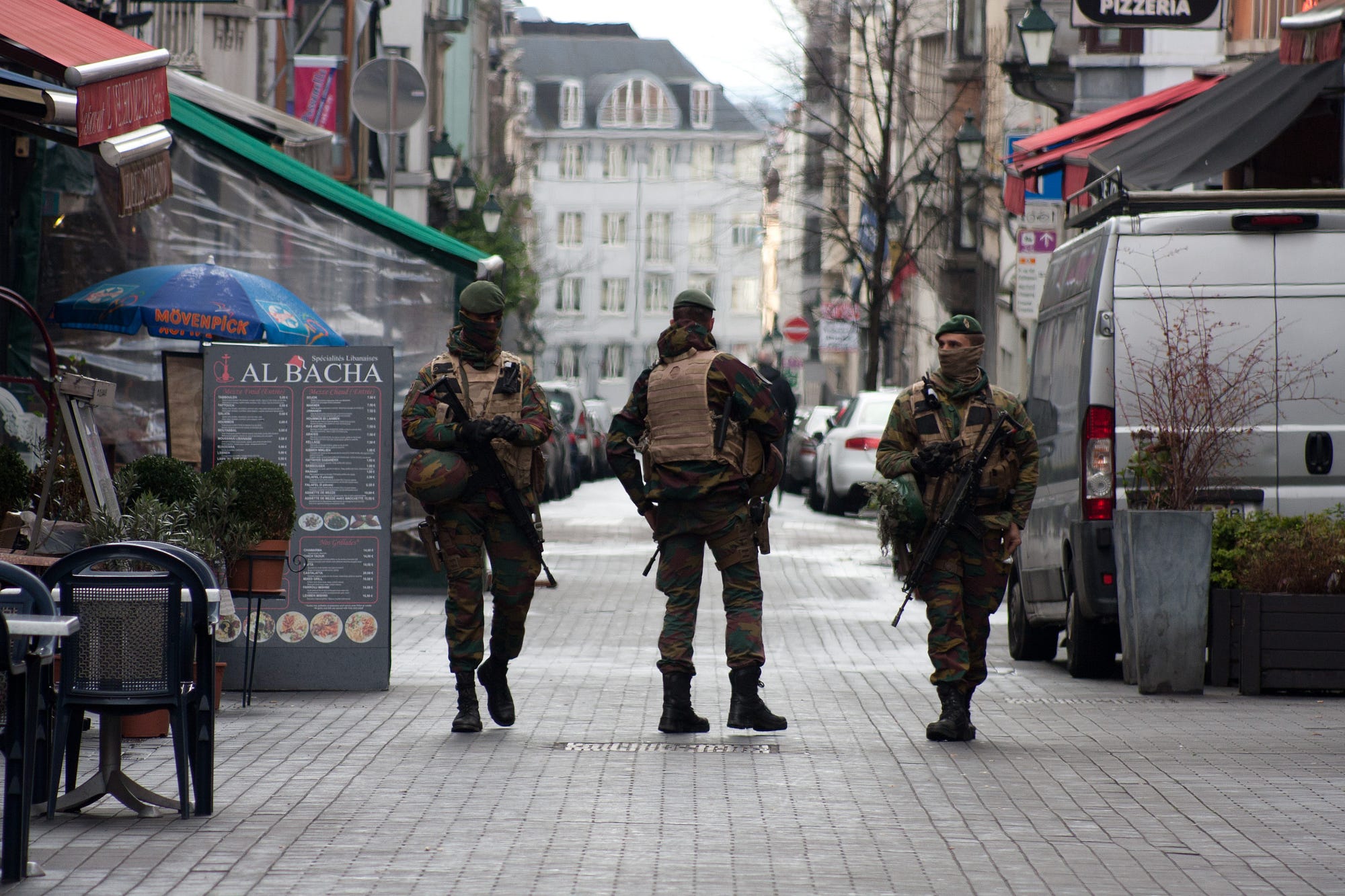https://medium.com/@ThirdWayTweet/why-we-re-not-brussels-88ceb6edf71c#.y3s5o0w2b
By Mieke Eoyang and Sanaa Khan

If Tuesday morning’s tragic terrorist attacks in Brussels follow the pattern we have seen over the last fifteen years, pervasive media coverage of the attacks will be followed by bombastic statements by politicians making extreme and overbroad proposals. Senator Ted Cruz has already called for police patrols of Muslim neighborhoods and Donald Trump announced that he would close U.S. borders. Before we get carried away with the rhetoric, let’s step back and give a little context to why the challenge facing U.S. counterterrorism professionals is very different than that confronting their Belgian counterparts.
First, Belgium is the European hotbed of terrorism. In 2014 there was a terrorist attack on the Jewish Museum in Brussels. In 2015, weapons used in the Charlie Hebdo attack were linked back to Brussels. The Paris attacks last November were planned by ISIS members based in Brussels. It is estimated that about 520 Belgians have gone to Iraq and Syria to fight for ISIS, and over 100 have returned, making Belgium the country with the highest number of ISIS fighters per capita from Europe. According to one estimate, Belgium has 46 foreign terrorists for every one million people, where the U.S. has only 1 per million.
According to one estimate, Belgium has 46 foreign terrorists for every one million people, where the U.S. has only 1 per million.
There is no hotbed of terrorist activity in the U.S. The scale of radicalization in the U.S. is far less than in Europe, and especially compared to Belgium. Only about 250 Americans have been influenced by ISIS ideology and traveled to Iraq and Syria, and of that, only about 40 have returned. The U.S. has a whole of government approach to investigating and prosecuting those who want to become a foreign terrorist fighter and return to the U.S. In addition, the U.S. has a pluralistic society where mosques and local communities work with the FBI to prevent radicalization and Muslims stand on the front lines in our military, law enforcement, and intelligence services. As a result, the U.S. homegrown threat is orders of magnitude lower than that in Belgium.
Second, Belgian counterterrorism efforts are some of the worst in Europe, in part for structural reasons. Belgium has three official languages, French, Flemish, and German, which complicate law enforcement communication across the various regions in Belgium. Brussels, where much of the terrorist activity is taking place, is separated into 19 districts, covered by six separate police forces, crippling the intelligence sharing needed to communicate more effectively between these communities and stop terrorist attacks. And since Belgium, like other European countries, has open borders, potential terrorists are able to move in and out of the country without Belgian counterterrorism officials knowing.
The U.S., on the other hand, has a coordinated counterterrorism policy that ensures communication across all levels of government, from the federal level, to local law enforcement. The U.S. has a vast surveillance apparatus staffed by thousands of counterterrorism analysts who track terrorist communications across the globe. The CIA and FBI maintain a terror watch list, and in coordination with screening agencies at the borders, ensures suspected terrorists cannot enter the country. The sophistication of U.S. counterterrorism efforts allows for far better coordination and preparedness than Belgium’s current policies.
The sophistication of U.S. counterterrorism efforts allows for far better coordination and preparedness than Belgium’s current policies.
Lastly, the combination of high numbers of potential terrorists, and the small and fragmented nature of Belgium’s police force means they have been spread too thin by investigations into terrorist attacks. A Belgian counterterrorism official said the country’s entire military, police, and intelligence resources are devoted to terrorism investigations. He admitted Belgium lacked the resources and infrastructure to address the threat effectively.
Belgium has been grappling with terrorism seriously since last year, but the U.S. has been doing this for fifteen years and has few resource constraints. The U.S. has thousands of federal agents and prosecutors who have deep experience investigating and convicting terrorists. The FBI has Joint Terrorism Task Forces, which operate throughout the country, staffed by 4,000 specialists who investigate local terrorist threats and disrupt them. The U.S. Homeland Security Department dispatches personnel throughout the country to provide training and technical assistance, and has provided more than $31 billion in funding since 2003 to build the capacity of state and local governments to prepare for terrorist attacks.
That is not to say that after 9/11 terrorist attacks can’t happen here. The families in Boston, San Bernardino, and Chattanooga know that all too well. But the challenge and the threat in Belgium is very different than in the U.S. Proposals to ban or register Muslims would not only run counter to our values, they would alienate and potentially radicalize more people in the U.S. Not knowing, or not caring, about that shows a lack of understanding of both the threat and also the expertise and professionalism of U.S. counterterrorism officials. Let’s not make their jobs harder. They’ve got enough to do already.
Mieke Eoyang is Vice President for National Security at Third Way, a centrist Democratic think tank. She has a deep history working on intelligence issues that includes serving as Defense Policy Advisor for Senator Kennedy, and as Subcommittee Staff Director on the House Permanent Select Committee on Intelligence. Sanaa Khan is Policy Advisor for National Security and comes to Third Way after four years on the Senate Foreign Relations Committee.
No comments:
Post a Comment